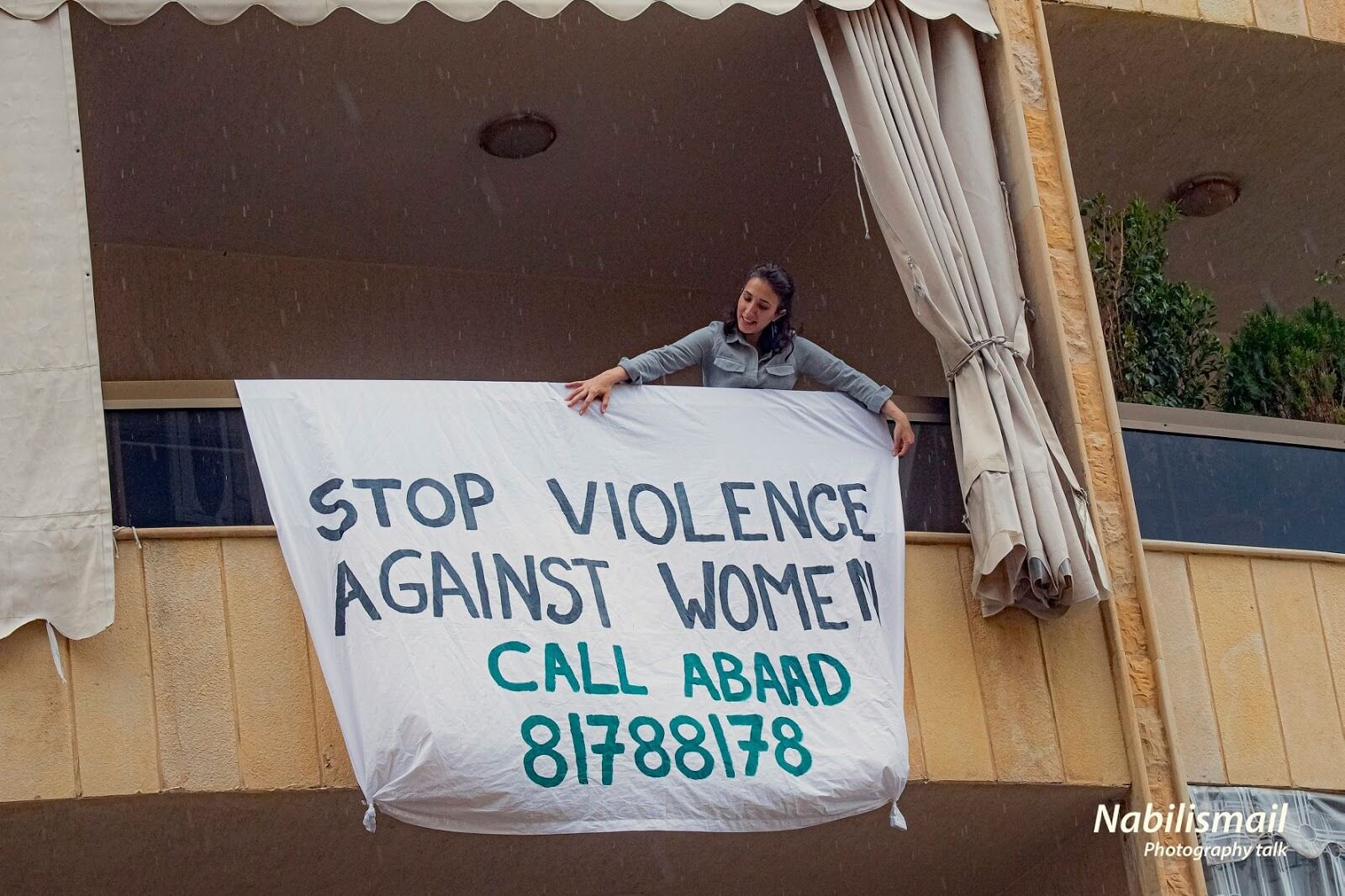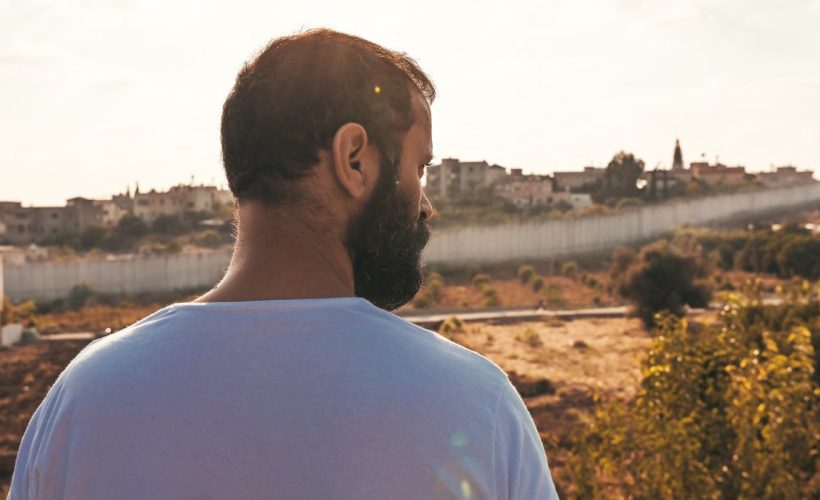Society
5.18.2020
#LockdownNotLockUp: Lebanese NGO ABAAD runs a campaign to fight against domestic violence

The Coronavirus outbreak has led to the confinement of numerous countries around the world. This measure, necessary to limit the spread, has, however, led to an increase in domestic violence. In Lebanon, the NGO ABAAD has taken the lead in the face of this grim phenomenon by launching the #LockdownNotLockUp campaign. KAWA Zooms in on this solidarity initiative, whose appointment was on the balcony and on social media!
“Confined yes, locked up no”, this is how one could translate the hashtag launched by the Beirut-based association ABAAD. Committed to gender equality in the MENA region and mobilized against gender-based violence, the NGO was determined to publicize the hotline dedicated to female victims of domestic violence. How? By encouraging the Lebanese to write out their truth in bold letters, on the medium of their choice, before hanging it on their balcony or on the edge of a window. The initiative spread massively through the hashtag #LockdownNotLockUp created by ABAAD. Narod Haroutunian, Public Affairs Coordinator within the NGO dives deeper.
#LockdownNotLockUp: why did you launch this campaign?
As cases of domestic violence spiked amid confinement, our priority was to garner solidarity, but also send a message of hope to all these confined and abused women. Our mission is to tell them “you are not alone, you don’t have to suffer in silence. You can call us and ask us for help.” There still are women who remain unaware of what services are available to them if they are being abused. For this reason, it proved crucial to increase the visibility of our helpline. The return has been great! Hundreds of people across Lebanon took part in this initiative. To date, the campaign has reached more than 3.5 million people on social medium. A number that continues to multiply!
©ABAAD
Why has domestic violence increased during the pandemic?
In the case of Lebanon, confinement coupled with the current economic crisis, exacerbates the risks of gender-based violence which is already present in homes and public spaces. Isolation, abuse of power, increased tensions, financial uncertainty and disruption of vital services are key factors that have aggravated the situation.
Why are women afraid to come forward?
There are several reasons. In many cases, they are afraid of the stigmatization. Beyond that there is this culture of shame, especially because of family pressure. They’re afraid of losing their children, but they’re also afraid of not being able to cope financially. Many women also hope that their abuser will change. Not to mention the feeling of powerlessness. They don’t know that there are appropriate services to help them.
How will you continue to support victims after deconfinement?
Through our safe spaces across the country. We will maintain and expand our services remotely as needed. The scope of action of front-line actors will also be strengthened. This mainly concerns the health, security and justice sectors. Finally, we are coordinating with stakeholders in order to move GBV (gender-based violence) issues forward on the national policy agenda.
Thanks to Narod Haroutunian, Public Affairs Coordinator at ABAAD
www.abaadmena.org
popular

